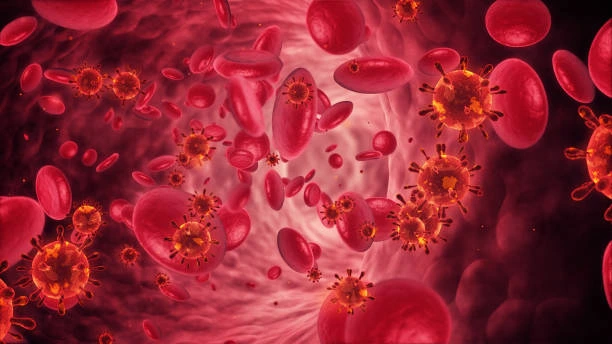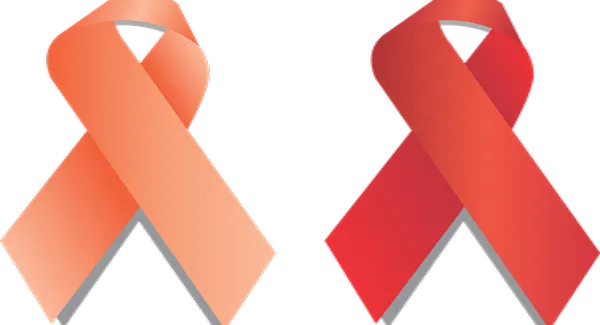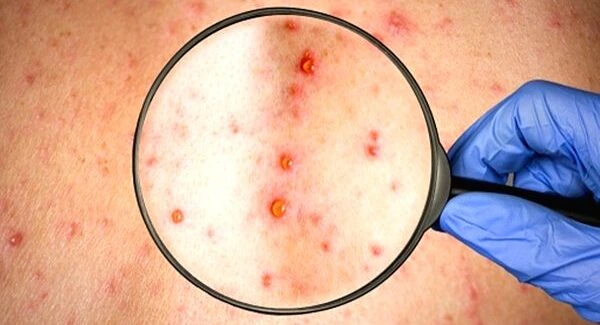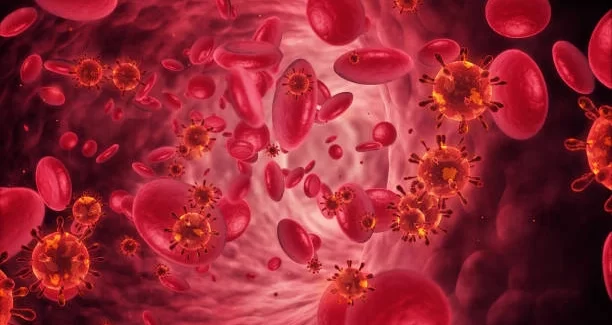Blood Cancer: Types, Symptoms, Causes & Treatments

Posted Date: February 25th, 2023
Cancer is a serious and frightening diagnosis that can affect anyone. There are many types of cancer but one of the more common and aggressive forms is blood cancer—a category of diseases where malignant cells begin to grow in the bone marrow or other areas related to blood production. In this blog post we’ll explore what constitutes blood cancer its various types its causes, symptoms and treatments. Whether you have recently been diagnosed with a form of leukemia or lymphoma or want to learn more about these diseases so you stay informed and healthy in case someone close to you develops them in the future – read on!
What is blood cancer?
Blood cancer is an umbrella term that describes a group of diseases including leukemia and lymphoma. In these conditions, malignant cells spread throughout the body through the bloodstream. As they move through the body, their presence can disrupt normal processes. These cells eventually reach organs like the liver or spleen, leading to health complications. Blood cancer can start in the bone marrow, where new cells are created or within the immune system. According to the American Cancer Society, blood and bone marrow cancer accounts for nearly 10% of all new cancers. However blood cancer is highly treatable and many diagnosed people lead healthy, normal lives.
Types of Blood Cancer
There are several types of blood cancer that can affect a person’s overall health and wellbeing. The most common forms include:
(i) Leukemia: Leukemia is characterized by an overproduction of abnormal white blood cells. These cells cannot fight infection like normal white blood cells, leading to a weakened immune system. Leukemia is typically divided into four subtypes: acute lymphocytic (ALL), chronic lymphocytic (CLL), acute myeloid (AML) and chronic myeloid (CML). Treatment for these conditions depends on their specific subtype.
(ii) Lymphoma: Lymphoma occurs when the body produces too many malignant cells in the lymph nodes. There are two main types of lymphoma – Hodgkin’s and non-Hodgkin’s. Treatment for these conditions typically involves chemotherapy, radiation therapy, targeted therapy or a combination of the three.
(iii) Myeloma: Myeloma occurs when the body produces too many malignant cells in the bone marrow. Additionally, doctors may also prescribe immunomodulatory drugs to suppress the growth and spread of cancerous cells.
(iv) Myelodysplastic syndromes: Myelodysplastic syndromes (MDS) are a group of conditions characterized by abnormal production of blood cells in the bone marrow. However the exact cause of MDS is unknown. Treatment for this condition may involve bone marrow transplants, chemotherapy or medications that boost the patient’s immune system.
(v) Myeloproliferative neoplasms (MPNs): One of the rarest forms of blood cancer, MPNs occur when the body produces too many red blood cells. Treatment for this type of cancer typically involves medications to reduce cell growth and the use of chemotherapy if necessary.
(vi) Amyloidosis: Amyloidosis occurs when a protein builds up in the blood and tissues, leading to organ damage. However the cause of this condition is unknown. Treatment for amyloidosis typically involves the use of chemotherapy or medications that can reduce protein levels in the body.
Symptoms of Blood Cancer:
Blood cancer can cause various symptoms depending on the type and location of cancer. Common signs and symptoms include:
(i) Fever & Fatigue: Fever and fatigue are very common symptoms of blood cancer. An unexplained fever or a constant feeling of being tired can be signs of leukemia or lymphoma. However these symptoms can be caused by other illnesses as well.
(ii) Night sweats: Severe night sweats or drenching of the clothes and sheets, can be a symptom of blood cancer. This often happens due to anemia or low red blood cell count caused by leukemia or lymphoma.
(iii) Unexplained Weight Loss: Unexplained weight loss is another common sign of blood cancer, especially in people with cancers like leukemia and lymphoma. This is because the cancer cells consume more energy than normal cells which can result in weight loss even without changing your eating habits.
(iv) Swollen Lymph Nodes: Swelling in the lymph nodes is a common sign of blood cancer, especially in people with lymphoma or leukemia. This swelling can occur in any part of your body but is usually seen near your collarbone and armpits.
(v) Bone and Joint Pain: Bone and joint pain can be a symptom of blood cancer, especially in people with leukemia. This usually occurs due to the accumulation of cells in the bone marrow which causes inflammation and pain.
(vi) Abdominal Discomfort: Abdominal discomfort is another common symptom of blood cancer, such as trouble eating, nausea or weight loss. This is usually caused by the accumulation of cancer cells in the stomach and intestines.
(vii) Shortness of Breath: Shortness of breath can signify blood cancer due to anemia or low red-blood-cell count. This symptom can also occur if cancer has spread to the lungs.
(viii) Bleeding and Bruising Easily: People with blood cancer may experience frequent or unexplained bleeding, such as nosebleeds, heavy menstrual bleeding, bruising easily and bleeding from gums. This is usually due to low platelet counts caused by cancers like leukemia and lymphoma.
(ix) Headaches: Severe headaches can be a symptom of blood cancer, such as leukemia and lymphoma. This is because the cancer cells occupy space in the brain which can cause pressure and headaches.
Furthermore some blood cancers may not cause symptoms at first so it’s important to be aware of the signs and get regular check-ups. If you experience any of the above symptoms or have concerns about your health it’s best to contact your doctor for a proper diagnosis and treatment. With early detection, many forms of blood cancer can be managed with the help of medical treatments and lifestyle changes.
What causes blood cancer?
While the exact cause of blood cancer is unknown, certain risk factors have been identified. These include:
1) Genetic mutations: Inherited genetic mutations, such as in genes associated with the immune system, can increase the risk of developing some types of blood cancers.
2) Exposure to radiation: Prolonged exposure to certain forms of radiation increases a person’s risk for some types of blood cancer.
3) Environmental factors: Some environmental factors, such as certain chemicals, can increase the risk of blood cancer.
4) Viral infections: Certain viral infections, such as Epstein-Barr virus and human T-cell lymphotropic virus type 1 (HTLV-1), are linked to an increased risk of certain types of blood cancer.
5) Smoking: Smoking has been associated with an increased risk of some types of blood cancer.
6) Age: The risk for most types of blood cancer increases with age.
7) Gender: Men are more likely to develop certain forms of blood cancer than women.
8) Race and ethnicity: Certain ethnicities, such as African American, Asian/Pacific Islander and Hispanic/Latino, may have an increased risk of certain types of blood cancer.
9) Exposure to certain drugs: Some chemotherapy medications used to treat other forms of cancer can increase the risk of developing some types of blood cancers.
10) Family history: Having a close relative with a history of blood cancer increases the risk of developing the same type.
11) Weakened immune system: Those with weakened immune systems have an increased risk of some forms of blood cancer.
12) Obesity: Being overweight or obese may increase the risk of some types of blood cancer.
13) Exposure to certain chemicals or toxins: Prolonged exposure to certain toxins and chemicals can increase the risk of certain types of blood cancer.
14) Alcohol use: Excessive alcohol consumption has been linked to an increased risk of some forms of blood cancer.
15) Exposure to industrial chemicals: Certain industrial chemicals, such as benzene and other solvents, have been linked to an increased risk of certain types of blood cancer.
16) History of chemotherapy: Those who have previously undergone chemotherapy for other forms of cancer may be at an increased risk of developing certain types of blood cancer.
17) Sun exposure: Prolonged exposure to UV rays has been linked to an increased risk of some types of blood cancer.
18) HIV infection: Those infected with HIV are more likely to develop certain types of blood cancer.
19) Certain autoimmune diseases: Certain autoimmune diseases, such as rheumatoid arthritis and lupus, can increase the risk of some types of blood cancer.
20) Exposure to hazardous materials: Prolonged exposure to certain hazardous materials, such as asbestos, has been linked to an increased risk of some types of blood cancer.
It is important to note that having any of these risk factors does not necessarily mean that a person will develop blood cancer. Additionally, many people diagnosed with blood cancer do not have any known risk factors. Therefore it is important to speak to your doctor if you believe you may be at an increased risk of developing blood cancer.
Treatments for Blood Cancer:
The treatment for blood cancer depends on the type and stage of cancer as well as a person’s age, overall health and personal preferences. Treatment options may include:
(i) Chemotherapy: Medications are used to destroy cancer cells. Chemotherapy drugs are usually given in cycles and can be taken orally (by mouth) or injected into a vein or muscle. Under chemotherapy, medications may be given alone or in combination.
(ii) Targeted Therapy: This type of treatment uses drugs that target specific molecules involved in the growth and spread of cancer cells. Targeted therapy helps reduce side effects caused by chemotherapy and radiation therapies, making them more tolerable for people with blood cancers.
(iii) Stem cell transplantation: This process involves replacing damaged or destroyed bone marrow with healthy stem cells. It’s used to treat certain types of blood cancer, such as leukemia and lymphoma.
(iv) Radiation Therapy: This treatment uses high-energy rays (or particles) to destroy cancer cells. Radiation therapy may be used alone or in combination with other treatments.
(v) Immunotherapy: This type of treatment works by stimulating the body’s immune system to recognize and attack cancer cells. It’s used to treat some types of blood cancer, such as lymphoma and leukemia.
(vi) Surgery: In certain cases, surgery may be used to remove a tumor or lymph nodes affected by cancer. However surgery is usually not the first treatment choice for blood cancer. If it’s used it’s usually done in combination with other treatments.
In addition to these treatments, supportive care such as pain management, nutrition support and psychological counseling are important components of managing the symptoms of blood cancer and providing comfort and quality of life.
How to diagnose blood cancer?
.
Blood cancer is usually diagnosed based on a physical exam, medical history and results from the following tests:
(i) Complete blood count (CBC): This test measures the number of red and white blood cells and platelets. Abnormal levels may be an indicator of cancer. Moreover, the size, shape and other characteristics of the cells can also be examined.
(ii) Bone marrow biopsy: This test is used to examine bone marrow samples for abnormal cells or evidence of cancer. A needle is inserted into the bone (usually in the hipbone) and a sample of fluid and/or tissue is removed for laboratory testing.
(iii) Cytogenetics: This is a laboratory test that examines the chromosomes in cells taken from tissue or fluid samples. It looks for genetic changes that are associated with cancer.
(iv) Molecular testing: This type of testing looks at the DNA of cells to determine if they contain specific gene mutations or changes. These changes can be used to detect and diagnose certain types of cancer and predict how the disease is likely to progress.
Furthermore, imaging tests such as X-rays, computerized tomography (CT) scans, positron emission tomography (PET) scans and magnetic resonance imaging (MRI) may also be used to detect abnormalities that are associated with blood cancer. It is important to note that your doctor may order additional tests to confirm a diagnosis.
QUES 1: Is blood cancer painful?
ANS: Yes, blood cancer can be very painful. The pain associated with the disease results from disrupted bone marrow production due to abnormal growths and abnormal cells in the body producing more hormones or other molecules than normal. Additionally, pain could be caused by an accumulation of fluids known as ascites in organs such as the abdomen and pelvis or it may develop from tumor growths which can put pressure on these areas. Other symptoms include fatigue, fever, anemia, chills and night sweats. Pain management is an important part of overall care for any person living with cancer and treatment plans typically include medications to help alleviate any discomfort associated with this type of cancer.
QUES 2: Can you survive blood cancer?
ANS: Yes it is absolutely possible to survive blood cancer. The likelihood of survival depends on the type of blood cancer you have and how early it is caught and treated. Leukemia and lymphoma are two very common types of blood cancers. Various treatments are available for both of these diseases to help people overcome the disease. Depending on your situation, these treatments may include chemotherapy, radiation therapy or stem cell transplantation. In some cases, medications such as targeted therapy or immunotherapy may also be used to treat leukemia and lymphoma. With early detection and proper care from your medical team- you can significantly improve your chance of beating this disease!
QUES 3: Can a blood test detect cancer?
ANS: Yes, a blood test can detect cancer. Medical professionals often use blood tests to help diagnose and monitor different cancers. A simple blood test is one way to look for substances in the body that are released from tumors or created in response to cancer growth. There are several different forms of these tests depending on which type of cancer is suspected including complete blood count (CBC), carcinoembryonic antigen (CEA) testing and tumor markers such as Prostate Specific Antigen (PSA). The accuracy of these tests varies by individual and form; however, they can provide important information about the presence, type, location and stage of cancer when used properly.
QUES 4: Is blood in sperm a sign of cancer?
ANS: No, having blood in sperm is not necessarily a sign of cancer. However it can be a symptom of prostate cancer or another type of tumor that affects the reproductive organs. In rare cases, if there is significant and persistent bleeding from the genital area it should be evaluated by a healthcare professional as soon as possible to rule out any underlying medical condition. Usually, however, seeing traces of blood in semen does not indicate cancer and could be due to trauma during ejaculation or other non-cancerous causes such as infections or inflammation. It’s always best to speak with your doctor if you have any concerns about this symptom.
The Last Word!
Though cancer can seem like a death sentence, treatments available give people with blood cancer hope for a cure. If you or someone you love has been diagnosed with blood cancer it is important to understand the symptoms, types and treatments available. With advances in medical technology there are more treatment options than ever before. Blood cancer is a serious disease but it is not necessarily a death sentence. With the right treatment plan, patients can live long and healthy lives. We hope this blog post has given you the information and courage to face a blood cancer diagnosis. Consider talking to your doctor about treatment options that work best for you or your loved one’s specific case.








